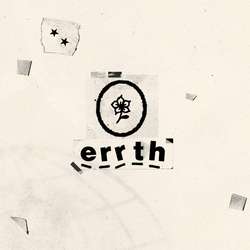I will say, right off the bat, the composition ability of Paul Ortiz, a.k.a. Chimp Spanner, is undeniably top-notch, as is his musicality. Sure, he can be a bit self-indulgent at times, but then again, as a solo artist, isn't that more or less the point? Regardless, it's clear that his latest album, All Roads Lead Here, is a visionary work; it was written with a level of complexity and sheer perfectionism that could only be obtained by an artist with the immense talent required to precisely articulate his ideas.
The first thing I'll mention is, though the album is certainly not as aggressively melody-less as some of its djenty counterparts, it still seems, for lack of a better term, amelodic. If you'll forgive me a few moments of pretentiousness, it is certainly purposeful with its tonal choices, but they rarely seem to intentionally reference any kind of melodic framework. To put it another way, it's tonal music without having any clear melodies. The music rarely resolves itself clearly or satisfactorily, often proceeding on winding and (only somewhat) aimless doodles reminiscent of artists such as Buckethead; it's full of technicality and flair, but doesn't seem to ever conclude itself. The lack of clear melodic resolution makes the music seem like it is in a constant state of digression which, on its own, is not necessarily a bad thing (certainly, it's a bold musical choice). However, it does set up expectations for the listener about where the music is going to go, and then consistently frustrates them. It also has the consequence of making the music less memorable. By that, I don't mean that the music isn't enjoyable or isn't impressive (because, let me tell you, it is). I merely mean that you won't be humming any of the tunes later simply because you won't be able to reconstruct the complexity of the pieces with any success.
And perhaps that's really where some of the charm is coming from--it's such a different aural experience than you'd expect from a djent artist that it becomes oddly endearing. "The Dark Age of Technology" is certainly aptly named, as most of the music does have a very cybernetic, artificial, faux-nineties-futuristic feel to it. It's like listening to the soundtrack of F-Zero as reimagined by Steve Vai. Granted, it does sound a bit dated at times, but it is tastefully so, as a stylistic choice rather than an unfortunate side effect.
The lead track "The Dark Age of Technology" is definitely the standout track here (seriously, they just don't write them this well anymore), but the closer "Cloud City" also deserves mention. It's incessently bouncy and consistent 6/8 framework threw me off after listening to the inexorably advancing and churning wall of endlessly changing polyrhythms on the rest of the album. Ortiz's soloing here is much more melodic than on the rest of the album, even jazzy at times, making the last piece much more memorable and perfect as a closer.
The grouping of "Möbius" into one song seems a bit arbitrary, seeing as the individual sections don't segue any differently than the rest of the album, and there isn't exactly any obvious musical or thematic connectivity that really unites them as a whole, making the whole song just a bit lengthy and tiresome. But that is a point only the nittiest of pickers would consider worthy of attention; if the song is regarded as three separate pieces, they are indubitably as strong as the rest of the album.
In short, All Roads Lead Here is a quite technically complex album that will likely appeal to fans of the intricacies of progressive metal as well as those who appreciate solo guitarists like Joe Satriani. It's definitely worth your time to listen to, if you give it a chance.




